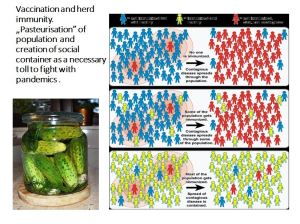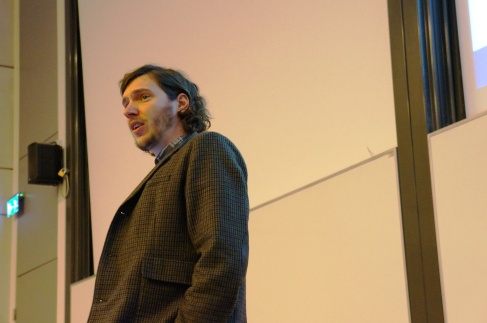The Genomics of Race: Implifications for Digital Cultural Health Capital
Following my involvement in the ‘Decoloniality and the Social Sciences’ Panel Series at the ESS meeting in New York City on March 1st, the editors of Installing(Social)Order have invited me to join the discussion of the theme of Decoloniality here on the blog. Many decolonial writers have made the argument that coloniality should not be reduced to the geographical division of Global North and Global South. Coloniality happens in many forms – which is why they should be resisted, according to Walter Mignolo, with ‘epistemic disobedience’ – in many places, including within and across the societies of the Global North. One major aspect of the relation between colonial power and knowledge within the Global North, especially within the United Sates, is facilitated through the concept of ‘race’, which has recently returned to the forefront of attention both politically (Trayvon Martin, Ferguson, etc.) and within science (genomics). In the following essay, I try to uncover some of the traces of the latter discourse and reflect on some of its political consequences for social scientific and STS research.
‘A spectre is haunting sociology, the spectre of race’. While I cannot be sure how many social science writers have deployed this little trope in the current discourses on genomics, race, and sociology, I find precisely the Derridaean allusion – that it is the trace of something that isn’t even there that becomes grafted and iterated – a powerful notion.
‘Race matters’ (in) biomedical terms. The emphasis in this sentence lies in the act of bracketing ‘in’. Within the social sciences, and the Science Studies may count as part of them, knowledge (practices) produced by the genomic regime, have ‘rebooted’ – is this silly Hollywood-ish word not ultimately fitting here? – the question of the materiality of the concept of ‘race’. Often enough, this ‘reboot’ is conducted with a blind eye to social history and a blind eye to the history of science. You do the math!
A slew of authors within the social sciences seem to blindly accept a scientistic approach (see Shiao et al. 2012), that proposes the following: ‘Genomics operates with a concept of race, sociologists may merely interpret the consequences of biomedical research after the fact.’ (Did one side really lose the science wars? My understanding was that both sides, that fought it, were still happy with the fact that it ended in a perpetual cease-fire agreement that no party actually showed up to sign). These authors then happily propose to discard any idea of the baggage that ‘race’ as a category bestows on people’s lived realities, while this baggage-by-any-other-name still weighs and matters heavily on the lives actually lived.
These realities are co-produced by genomic regimes because they do involve the increasing imbrication of biomedical research and health care practice regimes. President Obama’s recent announcement of a Precision Medicine initiative is just the tip of this ginormous iceberg: The (digital) collection, (digital) storing, and (digital) processing of all kinds of – ever BIGGER – data and biomedical materials, will not only be translated into more precise and personalized medical procedures, but it will also make possible intensified surveillance, control, exclusion, and silencing. Which will be the fault lines that these possibilities will move along as vectors? Should we really be surprised – as I argue in more detail elsewhere (2014, forthcoming) if these are the same old fault lines of social inequality and injustice that have been our concern in the 20th century: Ethnicity, race, age, dis/abelism, and sex/gender?
There is, on the one side, the fact that all these regimes of collecting, storing, and processing require access, competencies, motivations, and specific utilities to be able to participate in the digital informational infrastructures that govern them – and, in turn, their participants. On the other side, there are serious scientific, science sociological, and social scientific concerns: As Fujimura et al (2014) effectively demonstrate, many social scientists like Shiao et al (2012) operate with ‘misunderstandings of genetics’, that
‘ultimately pose an obstacle to studying how discrimination, racism, prejudice, and bias produce and reinforce socioeconomic inequalities and other disadvantages for racially marked individuals in society.’ (Fujimura et al: 220)
What’s at stake is, above all, the question of ‘meaning’ of these practices, how we make meaning, and what we make of it, for example politically (see also: Selg 2013).
At the same time, Janet Shim (2014), in extrapolating on the questions raised in the biomedicalization analytical framework (Clarke et al 2010), shows that when it comes to understanding the health outcomes, practicing(!) physicians’ understanding of ‘race’ differs effectively from the of the lived intersectional realities of patients, which leads Shim to introduce for analytical purposes an innovative notion of unequal construction and distribution of cultural health capital. In biomedical research, health care practice, and public health policy regimes (Roberts 2013), ‘race’ emerges therein as something that is equally ill-understood as a social fact as it is as a scientific fact, but it is understood by a great number of influential individuals as – some kind of scientific-sociological hybrid – ‘fact’. ‘Race’ becomes what I call (forthcoming) an implification – a neologism that combines to implicate and intensification. The deployment of ‘race’ in these biomedical and health discourse both implicates and intensifies, by establishing within the social science and from within the social science an inclusion-and-difference-paradigm (Epstein 2007) for contemporary and future health care. To be included, one has to submit biomaterials and other information for collection, storage, and processing, and one has to be able to do so in the terms of digital information architectures. By inclusion, one becomes reified in differences that are precisely not the lived realities one experiences in standing at the point of one’s intersection(alitie)s, but by the practices of a digital information expert regime. It is in this way that ‘race’ comes to matter anew (see also: Roberts 2012; Benjamin 2013). Expanding on Shim’s proposal, I have developed a concept of digital cultural health care capital (2014, forthcoming) to understand and study this development.
Finally, it is precisely because of this kind of haunting that ‘Black lives matter’: The necropolitical power (Mbembe 2003) in-play is worlded by the reification of race that implificates ‘Black lives’ as mattered in just such way that their lives ‘can be taken away’ – in the neocolonial terms of contemporary neoliberalistic regimes: the way Black lives are ‘matter’ is in terms of a negative interest rate on (the relevance of) life. In other words, the neoliberal regime and the way its practices ‘racialize’ translate Black lives to mean ‘a bad investment’, that is why for the neoliberal political economy Black lives appear mattered less relevant than others.
References:
Benjamin, Ruha. People’s Science: Bodies and Rights on the Stem Cell Frontier. Stanford, California: Stanford University Press, 2013.
Clarke, Adele E., Laura Mamo, Jennifer Ruth Fosket, Jennifer R. Fishman, and Janet K. Shim, eds. Biomedicalization: Technoscience, Health, and Illness in the U.S. 1 edition. Durham, NC: Duke University Press Books, 2010.
Epstein, Steven. Inclusion: The Politics of Difference in Medical Research. Chicago: Chicago University Press, 2007.
Fujimura, Joan. H., D. A. Bolnick, R. Rajagopalan, J. S. Kaufman, R. C. Lewontin, T. Duster, P. Ossorio, and J. Marks. “Clines Without Classes: How to Make Sense of Human Variation.” Sociological Theory 32, no. 3 (September 1, 2014): 208–27. doi:10.1177/0735275114551611.
Mbembe, Achille. “Necropolitics” Public Culture 15, no.1 (Winter 2003): 11 – 40
Roberts, Dorothy. Fatal Invention: How Science, Politics, and Big Business Re-Create Race in the Twenty-First Century. New York: New Press, The, 2012.
Roberts, Dorothy E. “Law, Race, and Biotechnology: Toward a Biopolitical and Transdisciplinary Paradigm.” Annual Review of Law and Social Science 9, no. 1 (2013): 149–66. doi:10.1146/annurev-lawsocsci-102612-134009.
Selg, Peeter. “The Politics of Theory and the Constitution of Meaning.” Sociological Theory 31, no. 1 (March 1, 2013): 1–23. doi:10.1177/0735275113479933.
Shiao, Jiannbin Lee, Thomas Bode, Amber Beyer, and Daniel Selvig. “The Genomic Challenge to the Social Construction of Race.” Sociological Theory 30, no. 2 (June 1, 2012): 67–88. doi:10.1177/0735275112448053.
Shim, Janet K. “Cultural Health Capital A Theoretical Approach to Understanding Health Care Interactions and the Dynamics of Unequal Treatment.” Journal of Health and Social Behavior 51, no. 1 (March 1, 2010): 1–15. doi:10.1177/0022146509361185.
———. Heart-Sick: The Politics of Risk, Inequality, and Heart Disease. Biopolitics : Medicine, Technoscience, and Health in the 21st Century. New York: New York University Press, 2014.
Stingl, Alexander. “The ADHD Regime and Neuro-Chemical Selves in Whole Systems. A Science Studies Perspective.” In Health and Environment: Social Science Perspectives, edited by Helena Kopnina and Hans Keune, 157–86. New York, NY: Nova Science Publishers, 2010.
Stingl, Alexander I. “Braining Your Life and Living Your Brain: The Cyborg Gaze and Brain-Images.” In Neuroscience and Media: New Understandings and Representations: New Understandings and Representations, edited by Michael Grabowski. Routledge, 2014.
———. “Digital Fairground ? The Virtualization of Health, Illness, and the Experience of ?Becoming a Patient? As a Problem of Political Ontology and Social Justice.” In Mediations of Social Life in the 21st Century, 32:53–92. Current Perspectives in Social Theory 32. Emerald Group Publishing Limited, 2014. http://www.emeraldinsight.com/doi/abs/10.1108/S0278-120420140000032004.
———. The Digital Coloniality of Power. Lanham, MD: Lexington, forthcoming.
Stingl, Alexander I. “Digital Divide.” In Encyclopedia of Global Bioethics, edited by Henk ten Have. New York: Springer, forthcoming.
Stingl, Alexander I., and Sabrina M. Weiss. “Mindfulness As/is Care.” In Wiley-Blackwell Handbook of Mindfulness, edited by Ellen Langer, Amanda Ie, and Christelle T. Ngnoumen. Hoboken, NJ: Wiley-Blackwell, 2014.


















































You must be logged in to post a comment.